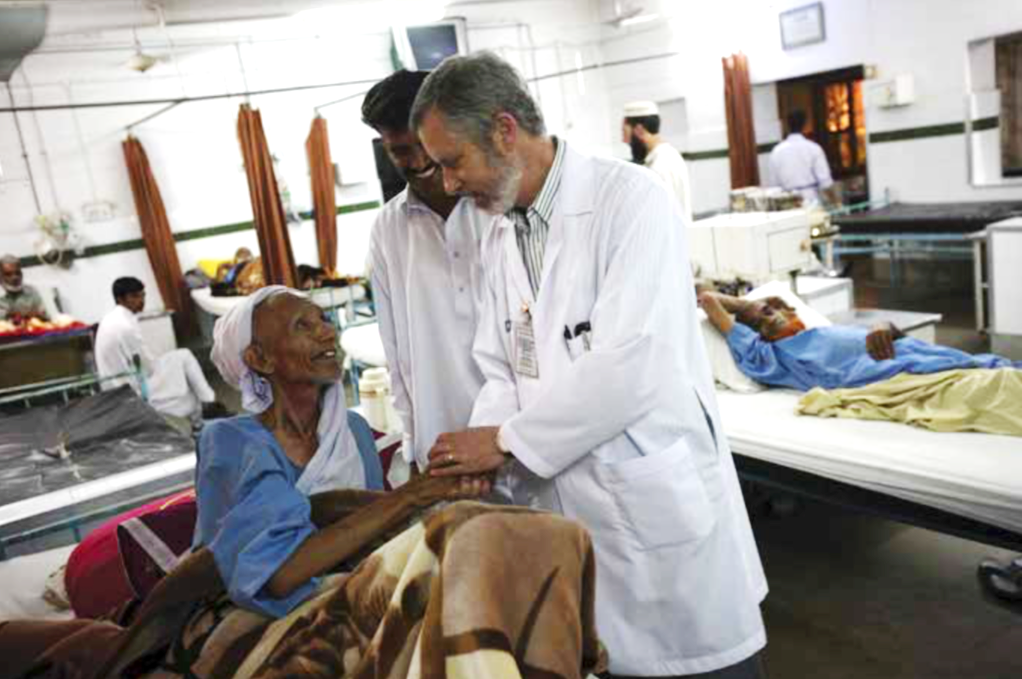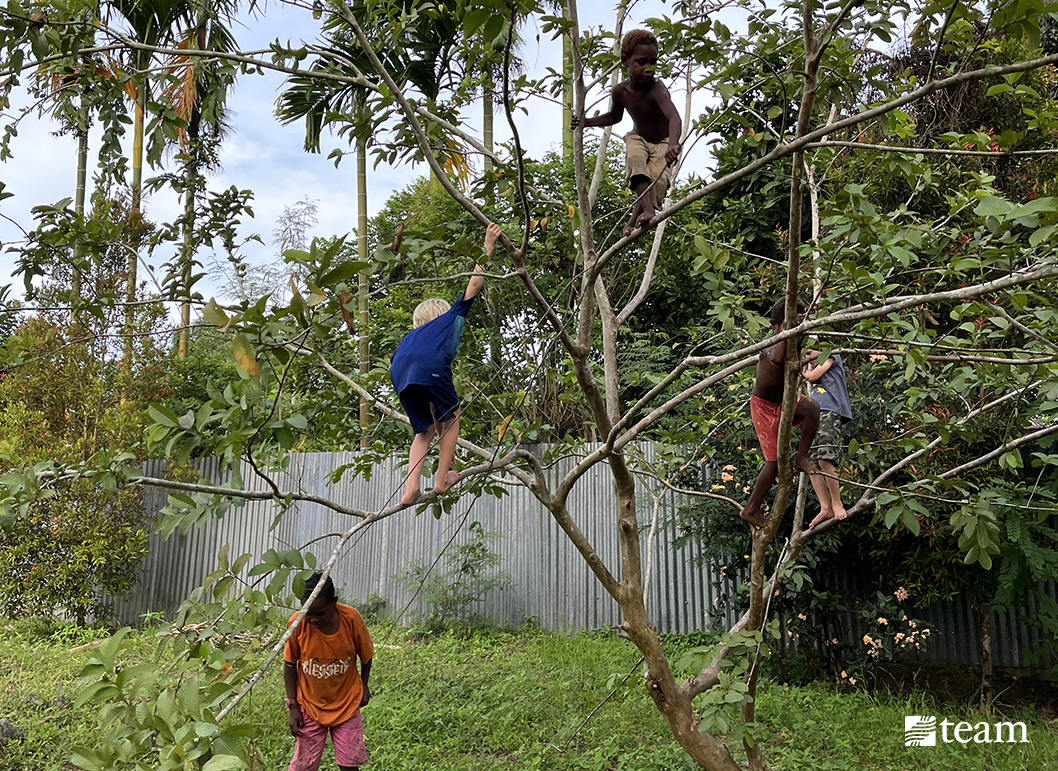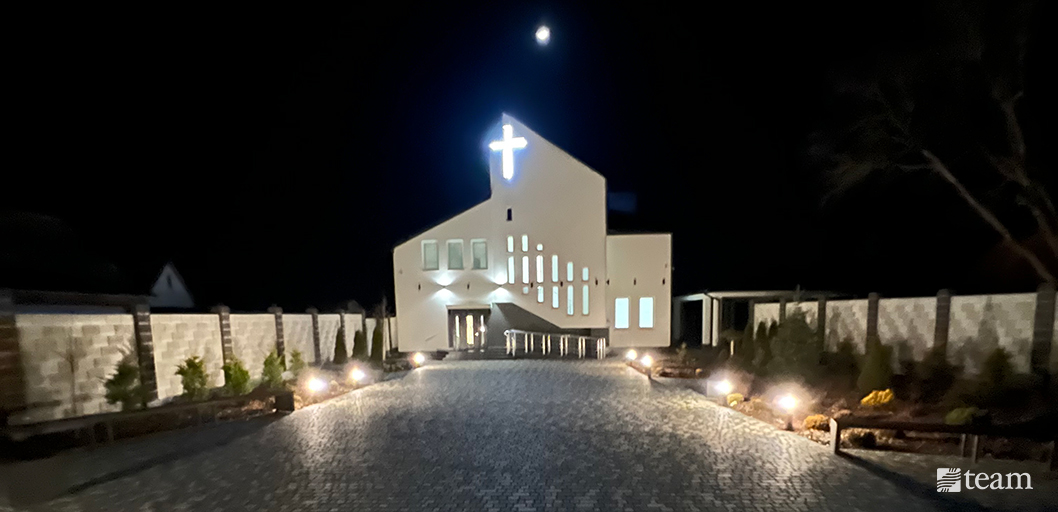
Ministry Updates
In Pakistan, Being a Doctor is More Than Medicine
October 17, 2016
by admin

Most mornings, Dr. Luke Cutherell’s alarm rings at 4:30 a.m. — that is, if he wasn’t already awake operating all night. After a quick run, Cutherell studies his Bible over breakfast, and by 7:00 a.m., he’s at Bach Christian Hospital in northern Pakistan, making rounds with inpatients.
An hour later, he gathers with a multinational staff of 225 nurses, physicians and surgeons to pray for the healing work ahead. Then he’s off to the clinic, where 300 to 400 people are eagerly waiting to receive treatment for everything from kidney stones to cancer.
These patients have traveled distances ranging from down the block to down the mountain, often passing other medical facilities along the way. They trade convenient treatment for compassionate care – something Bach earned a reputation for 60 years ago in a mud-brick clinic.
A Legacy of Care
The roots of Bach Christian Hospital reach back to 1951 when Dr. Andrew Karsgaard, a TEAM missionary, opened a dispensary and clinic to help the medically underserved and suffering in northern Pakistan. Locals flocked to the clinic, but Karsgaard saw unfulfilled potential to do more through life-saving surgeries.
The other missionaries agreed and voted to each contribute $10 a month (of their $66 monthly earnings) into a rent fund. Their investments, plus a large donation from a generous donor, allowed the doctors to break ground on Bach Christian Hospital in 1956.
Among these founding members were Caleb and Loretta Cutherell and their son Luke, whom Karsgaard delivered in Pakistan.
Growing up at Bach, Luke watched doctors and staff bridge cultural and religious divides through medical care. One surgeon in particular, Dr. Bob Blanchard, impressed Luke with the way he used his skills to build unique relationships with his patients. When it came time for Luke to pick a career, he was inspired to follow Blanchard’s example.
“As I began to think about what God would have for me and how I could make an impact in a [gospel] resistant country,” he remembers, “I was drawn to the fact that when you operate on someone, there’s a special bond that develops. … You make a commitment to that person, and that person has committed their life to your hands. It’s a dramatic thing in some respects.”
So after attending medical school in the U.S., Dr. Luke Cutherell returned to Pakistan as a general surgeon and today serves as the director of Bach Christian Hospital.
More than Medicine
Historically, Bach treated many patients suffering from typhoid or tuberculosis. As Pakistan has developed economically, the doctors see less of these cases and now can serve more patients facing high-risk pregnancies, tumors and cancers, burns or gallbladder disease.
But to Cutherell, the hospital’s high regard in the community cannot be attributed to technical skills alone.
“One thing we have to offer is compassion,” he says. “We’re not here to make money. We’re here to serve. … We’re committed to caring for poor people and trying to make it possible that nobody’s turned away because of lack of funds, even though we expect everybody to pay something.”
The other service Bach offers the community is just as intangible.
Cutherell explains, “If you ask people again and again, why they come here, they say, ‘We trust you. When we buy medicines in the bazaar and other places, those are second-rate medicines. They’re not pure. We don’t trust the people that make them. But we trust what you do.”
What it Means to Serve in the Name of Jesus
This reputation has caused the demand for care to outstrip what Cutherell and his staff can provide. For the chance to be served, some patients line the hospital gate at night and stay until morning. And it’s common for Cutherell to receive phone calls from family members of sick people pleading with him to see their loved one.
It’s a tension that Cutherell recognizes as a problem, but growing, he asserts, would cause a much greater one. “It’s a common practice in missionary medicine that need drives how things are done,” he says. As a result, Cutherell has seen hospitals expand too rapidly, resulting in a burnt out staff and an anemic operation.
Instead of need, Cutherell is driven by a commitment to constantly improve the quality of care at Bach. “If we’re serving in the name of Jesus,” he says, “the care had better be better than what’s around you. If it’s worse than what’s available around you, don’t do it in the name of Jesus. You don’t honor him with second-rate work. That’s central to our thinking.”
When first-rate work leads to physical healing for a sick patient, Cutherell can’t help but consider himself blessed too.
“To see a child badly burned whole again and a woman with breast cancer to be healed of that [or] the kid last night that needed his appendix out is happy and wanting to go home this evening. Those kinds of things are very rewarding. …
“We consider ourselves privileged to be here. It’s not been easy, necessarily, but at the same time, there have been rewards that are probably far more than we deserve.”

